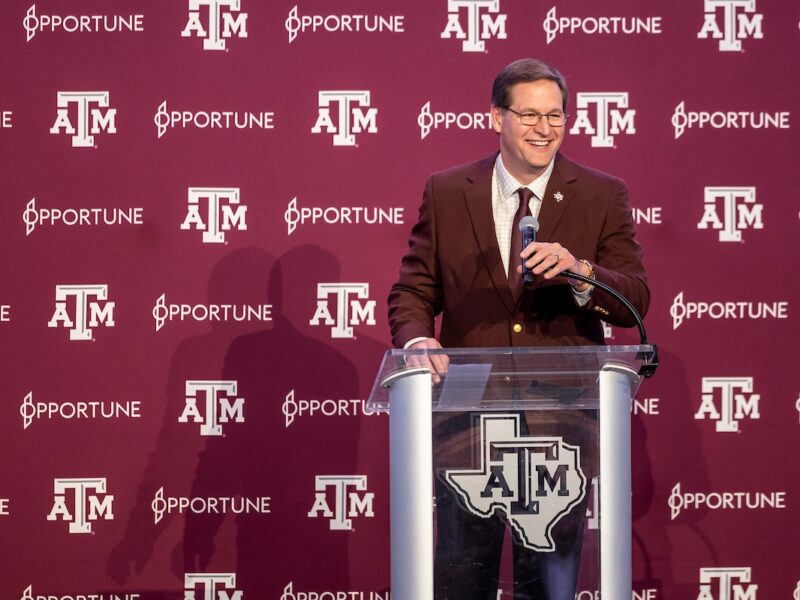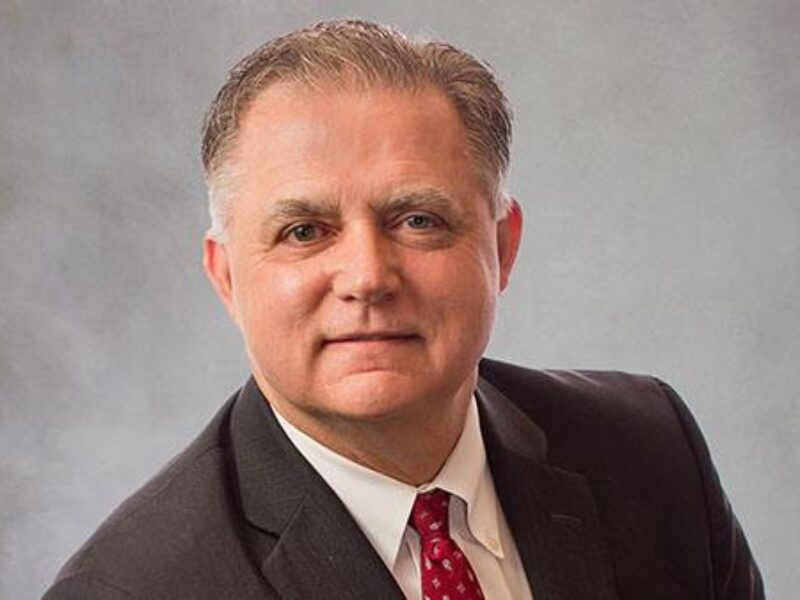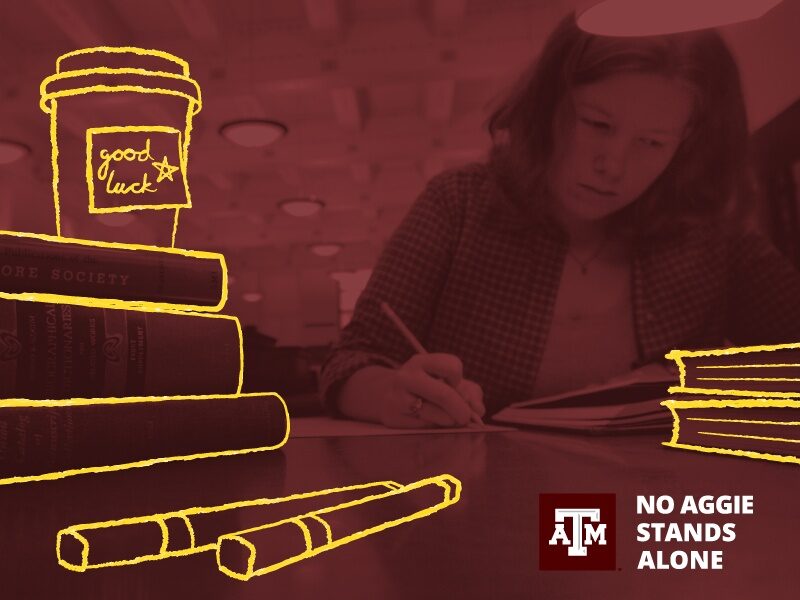John L. Junkins Answers Call To Serve As Interim Texas A&M President
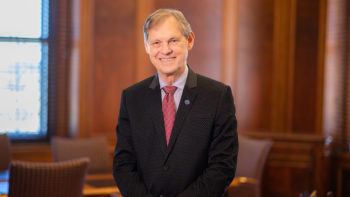
In 1922, the tradition of the 12th Man was born when Coach Dana Bible called on E. King Gill to stand and be ready to play for the Aggies.
This tradition of volunteered service lives on in the hearts of all Aggies and has few better examples than John L. Junkins, who answered that call to service on Nov. 24 when Texas A&M University System Chancellor John Sharp asked him to act as the interim president of Texas A&M University.
Professor Junkins, as he likes to be called, never set out to be university president. He never aspired to be a department head or dean of a college. His true love has always been people and leading from his heart; those passions that ignite a fire within him.
He is known as a prolific researcher. However, he often says the teamwork that results in changing the lives of his collaborators is more important than the research results. He is also a principled and goal-focused leader who has led presidential searches and participated in frequent service activities at Texas A&M.
Sharp and the Texas A&M System Board of Regents recognized Junkins’ legacy of leadership and service and chose him to lead the university with the knowledge that he would bring the right set of values to the job. Junkins accepted, recognizing this role as perhaps his ultimate service to the university.
“I’m very excited to make an important service contribution to this university that I’ve grown to love over the 35 years I’ve been here,” Junkins said.
In an introductory letter to the campus, Junkins promised not to bring a “bold new agenda,” but rather to help Texas A&M navigate along its currently planned course and work closely with senior leadership and faculty to solve problems as they arise.
“I’m having to learn how to work to pull a large group of people together while still exercising my best judgment on many small and large issues that define the way forward,” Junkins said.
John Hurtado, professor of aerospace engineering and deputy director and chief technology officer of the Bush Combat Development Complex, believes that Junkins is well suited for the job.
“Dr. Junkins is a big thinker,” Hurtado said. “He brings a large vision to whatever challenge he encounters. And he genuinely sees the good in people. This allows him to build trust, consensus and motivation.”
Junkins joined the faculty of the aerospace engineering department in 1985 after previous appointments at the University of Virginia and Virginia Tech. Walter Haisler, professor emeritus, recruited Junkins, knowing he would help lead Texas A&M to national prominence in the space program.
Calling him a visionary, Haisler says of Junkins, “He was key to building the department’s space program. He was a tireless, unselfish leader who always was the first to do whatever was needed. He personifies ‘lead by example.’”
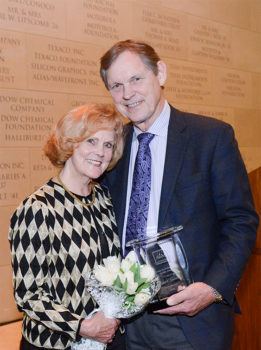
Junkins was instrumental in advancing an unranked department with only 13 faculty members by focusing on recruiting other great leaders to help set the tone for the department, creating what is now a pinnacle of research and engineering education within the university and home to more than 45 faculty members. The department’s undergraduate program is ranked seventh and the graduate program is ranked fifth among public institutions by U.S. News & World Report. With a nation-leading eight National Academy of Engineering members, the department is rapidly rising in national rankings.
“He was a role model for both students and faculty,” Haisler said. “And he instilled enthusiasm and motivation for seeking perfection and doing it with integrity. He focused on developing others, faculty and students alike, and his actions were always for the good of the department. He is one of very few faculty I know who has voted with his life savings to advance Texas A&M. He and his wife Elouise left their estate to establish an endowed chair for the department.”
In 1999, Vision 2020 was adopted, an aspirational outline designed to elevate the university among its national public peers over the next 20 years. Junkins was so inspired by this document that he came up with the idea for the Hagler Institute for Advanced Study. In what he likens to speed dating for Nobel Laureates, the institute brings renowned faculty from all over the world to study and conduct research with Texas A&M faculty and students.
Approved by the Board of Regents 2010, Junkins held off launching the Institute until he had enough funding to make it accessible across the entire campus.
“I felt like I had to make it matter, from the onset, to every college and the entire university,” Junkins said. “If I didn’t, it would become associated with one or two colleges and would never be adopted as something to elevate every department in the university.”
The institute became a fully funded reality in 2011, attracting more than 80 eminent scholars to Texas A&M in the past nine years, including 11 who are now permanent faculty members. Fifteen colleges have already attracted two or more fellows. The Institute has raised more than $40 million of endowment and gift commitments to secure its place on campus permanently.
Junkins believes that his track record and experience with the institute will be helpful in his role as president.
“I think my leading the institute shows that I’m not a person who thinks engineering first, last and always. I’ve really tried to lead the Institute to elevate the university,” Junkins said. “So I hope people can see my heart is in the right place.”
Acknowledging that there are many challenges to face in his new role, Junkins jokes that, “If I could get a B-plus out of the spring semester right now, I’d take it.” He believes the best thing he’s done so far is choosing Mark Weichold to assume the provost position.
“Mark has a really wide set of skills and experience,” Junkins said. “He complements me well, with more administrative experience. I’m looking forward to seeing how we work out as a tandem.”
When the presidential search is over and a new president is named, Junkins looks forward to going back to being Professor Junkins and his true passion of mentoring and developing great people. He believes development and motivation of the next generation is the most important thing the university does.
Junkins said, “The ultimate output of research is not a paper, book, patent or new technology; it is rather a younger person’s advancement. This person will usually build their early career on the ideas and take it to the next level.”
Junkins proudly says that he has about 160 doctoral descendants, with three generations of professors.
“Almost half of my 55 graduate students became professors, which as far as I know, is a national record,” Junkins said.
Among his “descendants” are Hurtado, Manoranjan Majji and Rao Vadali, interim department head of aerospace engineering. These Texas A&M faculty members are part of the living legacy Junkins will leave to the university.
Junkins believes the Hagler Institute for Advanced Study is an “excellence engine” that will infuse new talent and ideas every year, forever. He hopes that his time as interim president will provide stability and a smooth transition to launch the tenure of the next great president of Texas A&M.
“I hope that my historical record here buys some forgiveness when I hit speed bumps making tough decisions this spring,” he said. “I trust that people will see my heart’s in the right place, and I’m trying to preserve what’s great about Texas A&M and, when possible, find ways to make us better.”
This article by Jan McHarg originally appeared on the College of Engineering website.
